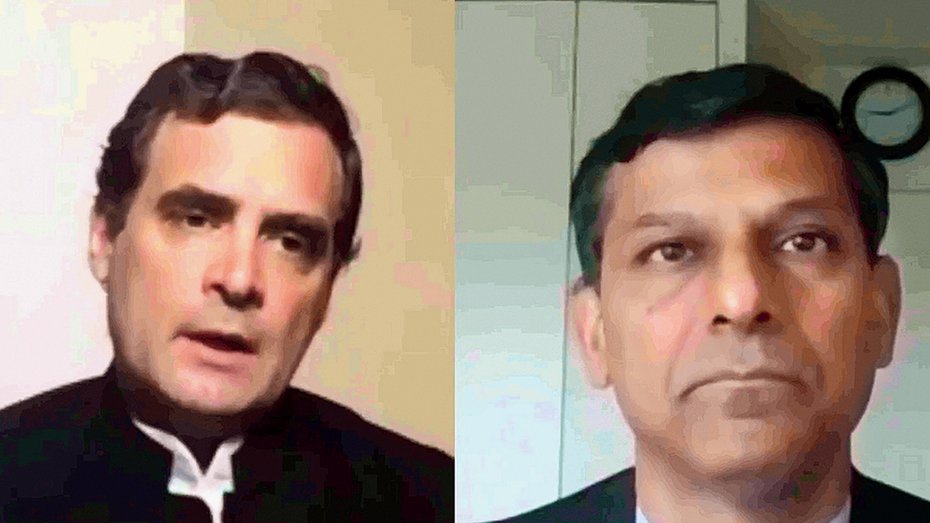The recent conversation between Rahul Gandhi and Raghuram Rajan raised a number of key issues about the Covid-19 crisis and the twin challenges of containing the disease while protecting the economy. Long periods of lockdown can be disastrous. Hence a calibrated sequence of easing restrictions becomes critically important. Money and food have to be reached to people who are desperately poor — migrant workers, marginal farmers and landless labourers. According to one estimate, about 100 million people have already lost their incomes during the short period of less than two months. Mr Rajan’s quick estimate of the funds required for this purpose is Rs 65,000 crore. This is a very small amount when compared to India’s national income.
Mr Rajan and Mr Gandhi agreed that tackling the twin challenges in India were distinctly different from confronting similar questions in developed economies. In India, there are massive economic inequalities with deeply embedded divisions in terms of caste, community and class. A lack of social harmony can create a large deficit of trust in the political leadership, the administration and the police, and even among citizens. The Centre has centralized a lot of power by invoking the National Disaster Management Act to control the disease. Yet, in many ways, a pandemic does not listen to the dictats of the government. India being so diverse a nation, it is important to decentralize decisions. Such a step would be more efficient in terms of local information that is available and the sense of empowerment it gives to local communities.
Arguably, the most important aspect of the conversation concerned the vision required for making India strong and resilient in the future. The usual list of capabilities based on better education and healthcare systems and greater infrastructure was mentioned. However, it was felt that although governments have learnt to harp on these issues, they remain unwilling to walk the talk. It was agreed that there is a need for social change while respecting the rich diversity of India. The real challenge for India going forward would be to create quality jobs that would enable the large lower-middle class to improve its standard of living. Mr Rajan made an important observation to this effect: reducing economic inequalities requires the redistribution of opportunities on a large scale. The conversation brought into focus the centralized power of the Union government, which is appearing to be rather arrogant about its ability to control the disease and keep the economy running.











